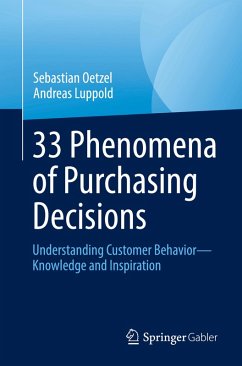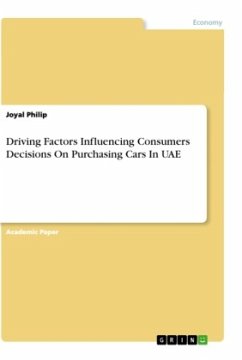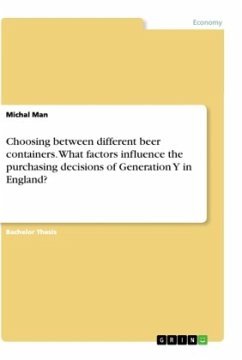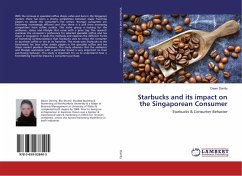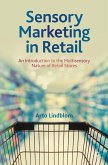This book will help you better understand the purchase decisions of your customers: How do customers decide? Are we confused by too much choice? Are we deceived by a decoy on the shelf? How well can we compare prices? How do hunger and caffeine influence our purchasing behavior?
As a marketing and sales professional, you regularly deal with purchase decisions made by your customers regarding your product offerings. Marketing decisions are sometimes made under great uncertainty and with little reliable knowledge - but with a lot of "gut feeling".
In 33 short chapters, Sebastian Oetzel and Andreas Luppold, experts in shopper marketing and shopper research, present relevant factors and phenomena that influence purchasing decisions. The authors illuminate various aspects of purchase decision-making and discuss and sometimes refute common hypotheses from the perspectives of classical economics, behavioral economics, and psychology.
A book for anyone professionally or academically involved in purchase decisions - and for anyone who wants to better understand and question their own purchase decision-making processes.
With a foreword by Dr. Alexander Lauer (Aldi Nord) and Prof. Dr. Bernd Skiera (Goethe University Frankfurt).
Excerpt from exciting questions for which you will find insights and actionable answers:
Why we should use positive frames. And why the higher number brings more.Why "EUR 0.-" is better than "Free". And why the chance to get it for free works better than a guaranteed discount.Why individuality can lead to more dissatisfaction. And why men shouldn't shop together.Why price guarantees can lead to higher prices for buyers. And why they simultaneously improve the retailer's price image.Why we are unconsciously influenced by stimuli before making a purchase decision. And why some stimuli tempt us to do exactly the opposite.
... and 28 more phenomena.
As a marketing and sales professional, you regularly deal with purchase decisions made by your customers regarding your product offerings. Marketing decisions are sometimes made under great uncertainty and with little reliable knowledge - but with a lot of "gut feeling".
In 33 short chapters, Sebastian Oetzel and Andreas Luppold, experts in shopper marketing and shopper research, present relevant factors and phenomena that influence purchasing decisions. The authors illuminate various aspects of purchase decision-making and discuss and sometimes refute common hypotheses from the perspectives of classical economics, behavioral economics, and psychology.
A book for anyone professionally or academically involved in purchase decisions - and for anyone who wants to better understand and question their own purchase decision-making processes.
With a foreword by Dr. Alexander Lauer (Aldi Nord) and Prof. Dr. Bernd Skiera (Goethe University Frankfurt).
Excerpt from exciting questions for which you will find insights and actionable answers:
Why we should use positive frames. And why the higher number brings more.Why "EUR 0.-" is better than "Free". And why the chance to get it for free works better than a guaranteed discount.Why individuality can lead to more dissatisfaction. And why men shouldn't shop together.Why price guarantees can lead to higher prices for buyers. And why they simultaneously improve the retailer's price image.Why we are unconsciously influenced by stimuli before making a purchase decision. And why some stimuli tempt us to do exactly the opposite.
... and 28 more phenomena.

